AI can completely change how teachers teach and learn, giving students access to a more individualized, effective, and efficient educational experience. With an emphasis on enhancing student outcomes and advancing educational equity, it is crucial to ensure AI is utilized responsibly and professionally.
Market Value of AI in Education
In the upcoming years, the market value of AI in the education industry will increase dramatically. The global market for artificial intelligence in education was estimated to be worth $0.8 billion in 2019 and is projected to expand at a compound annual growth rate (CAGR) of 38% to reach $6 billion by 2025, according to a report by HolonIQ.
Many factors, such as the rising need for personalized and adaptive learning, more efficient and effective educational systems, and the expanding accessibility of AI-powered tools and platforms, are propelling the expansion of the AI education market.
The report outlines many crucial segments of the AI education industry, such as adaptive learning, learning analytics, and intelligent tutoring systems, that are anticipated to grow considerably. The use of chatbots and virtual assistants, automated grading, and language learning are expanding areas.
While the market for AI in education is still relatively modest in comparison to other industries like healthcare and finance, it is anticipated to continue expanding quickly in the years to come as more educational institutions and schools use AI-powered tools and platforms. New entrants and companies will have chances to create cutting-edge AI solutions for the education industry as the market expands.
Challenges and concerns of AI in education:
Several challenges and concerns are associated with its use in the classroom. Here are a few of the main challenges and concerns:
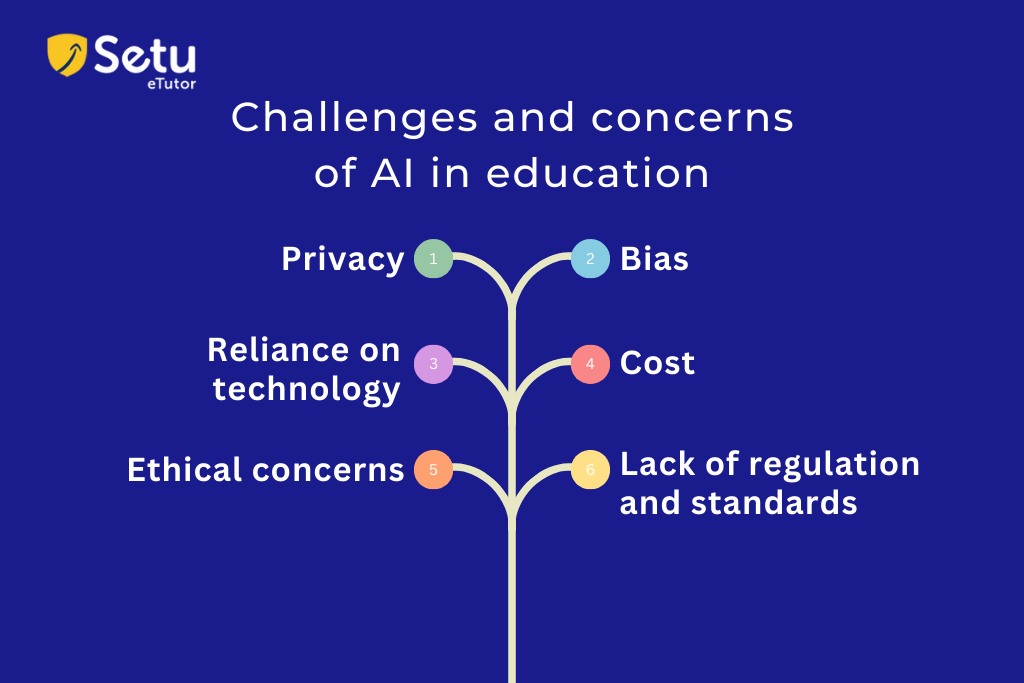
Privacy: Using AI in education raises concerns about data privacy and security. The collection and use of student data must be transparent, and educators must take steps to ensure that student data is protected from misuse or unauthorized access.
Bias: AI systems are only as good as the data they are trained on, and if the data is biased, the system can also be biased. Educators must ensure that AI systems are trained on diverse and representative data sets to avoid perpetuating biases or discrimination.
Reliance on technology: As AI becomes more prevalent in education, there is a risk that educators may become too reliant on technology and overlook the importance of human interactions and relationships in learning.
Cost: Implementing AI systems in education can be expensive, which may limit access to these technologies for schools and students who need help to afford them.
Ethical concerns: The use of AI in education raises ethical concerns about the role of technology in teaching and learning, as well as issues related to privacy, bias, and transparency.
Lack of regulation and standards: There needs to be clearer regulations and standards for the use of AI in education, which could lead to inconsistencies in how these technologies are used and potential risks for students.
Impact of AI on school education:
In numerous aspects, artificial intelligence (AI) has the potential to have a substantial impact on educational institutions:
Personalized leanring experiences: Personalize learning expereinces for each student can be produced using AI by examining their learning styles, aptitudes, and deficiencies. As a result, students’ learning results are improved since teachers can adapt their teaching methods to each student’s needs.
SETU is an technology-driven AI-assisted platform that helps in improving the student learning outcomes and create personalized learning experiences for the students.
Intelligent tutoring programmes: Students can receive individualized advice and feedback based on their performance from intelligent tutoring programmes driven by AI, which can help them better comprehend and master the subject.
Automated grading: AI has the potential to automate the grading process, saving teachers’ time and allowing them to concentrate on giving students-specific feedback.
AI-powered virtual assistants can support students with activities like scheduling, schoolwork, and research, making it simpler for them to manage their workload and remain organized.
Predictive analytics: AI can examine student data to forecast future academic achievement, allowing teachers to step in and offer more assistance before issues develop.
Augmented reality: By incorporating augmented reality into classes, AI can improve the learning environment by enabling students to engage more fully with digital content.
Conclusion:
The future of AI in education is bright, with the potential to transform education and improve learning results for students of all ages and backgrounds. With the help of artificial intelligence, SETU creates a more individualised, successful, and efficient educational system that prepares students for success in the twenty-first century.


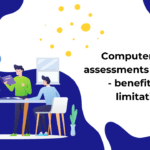
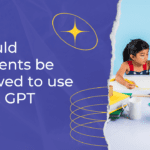
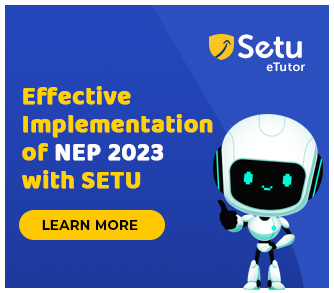
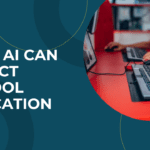
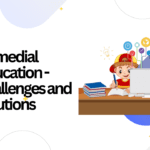
Leave a reply